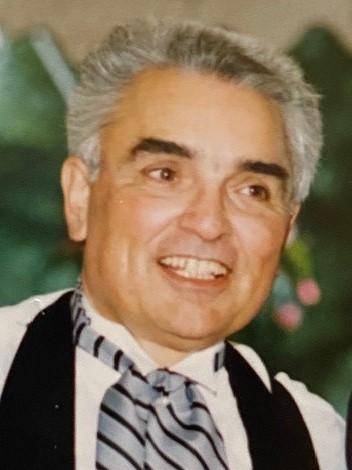Remembering Joseph Scotto, Former DCEG Biostatistician
, by DCEG Staff
Joseph Scotto, M.S., retired biostatistician and epidemiologist at the National Cancer Institute, passed away on August 5, 2020, at the age of 81. In 1962, following graduation from Columbia University School of Public Health, Mr. Scotto joined the Biostatistics Branch at the NCI as a commissioned officer in the U.S. Public Health Service. He retired in 1992 after a remarkable 30 years of service.
During his career at the NCI, Mr. Scotto applied his expertise in statistics toward the development of population-based studies of skin cancer. Prior to the 1970s the descriptive statistics on non-melanoma skin cancer incidence were grossly underestimated due to the reliance on hospital diagnoses, which did not capture most of these cases. Mr. Scotto took the lead in designing and conducting periodic surveys of skin cancer in parts of the country involved in studies of cancer incidence and mortality. He joined forces with other agencies to measure ground-level ultraviolet radiation (UV)-B exposure in those areas, clarifying the relationship between exposure to UV and risk of skin cancer. These data provided evidence needed to address mounting public health concerns about the thinning of the ozone layer in the atmosphere, a result of certain man-made environmental pollutants.
Together with Dr. Thomas Fears of the Biostatistics Branch, Mr. Scotto utilized the trends in skin cancer and UV-B exposure along with satellite data to develop innovative mathematical models to project trends of skin cancer expected from further reduction in the protective ozone layer. The results of these studies are summarized in separate chapters on UV radiation and non-melanoma skin cancer published in the first three editions of the textbook Cancer Epidemiology and Prevention, edited by David Schottenfeld and Joseph F. Fraumeni, Jr.
“Joe’s portfolio of research in non-melanoma skin cancer filled major gaps in our understanding of these extremely common tumors. His leadership in skin cancer epidemiology, his outgoing personality, and his collaborative approach to working with scientists at other agencies, including EPA, NOAA, and NASA, have provided a model for evaluating and mitigating threats to public health that may be posed by climate change,” reflected Joseph F. Fraumeni Jr., M.D., NIH Scientist Emeritus and former DCEG Director.
